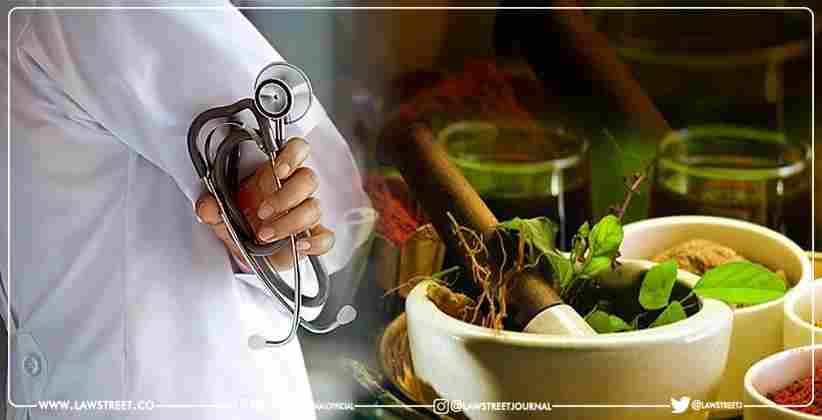On Thursday, the Supreme Court affirmed the Uttarakhand High Court's decision that Ayurvedic doctors will be paid at the same rate as allopathic and dental medical officers under the NRHM/NHM Scheme.
Justices Vineet Saran and J.K. Maheshwari of the Supreme Court refused to hear the appeal against the High Court's decision.
However, this has been explained -
"However, we may only clarify that the respondents who are Ayurvedic doctors will be entitled to be treated at par with Allopathic Medical Officers and Dental Medical Officers under the National Rural Health Mission (NRHM/NHM) Scheme."
Factual Background
The National Rural Health Mission ("NRHM"), a sub-mission of the National Health Mission ("NHM"), was launched by the Union Government in 2015 to offer accessible, affordable, and high-quality health care to the rural people. Between 2010 and 2013, the responders worked for the Mission as Medical Officer, Ayush, on a contract basis. They were made members of the Rashtriya Bal Swasthya Karyakram (RBSK). Under the NRHM, the Uttarakhand State Government also hired contractual Allopathic, Dental, Ayurvedic, and Homeopathic Medical Officers. The salaries of allopathic and dental doctors differed significantly from those of ayurvedic and homoeopathic doctors. The responders had made representations requesting salary equity, but they had been unsuccessful. While rejecting their claims, the concerned authorities stated that they were not entitled to parity because they were working on a contract basis. The respondents had taken their grievances to the Uttarakhand High Court.
Contention Raised
The Ayurvedic Medical Officers (respondents) argued before the High Court that there was no salary disparity between allopathic and ayurvedic medical officers according to a government advertisement published in 2010. It was also asserted that the Ayurvedic and Allopathic Medical Officers had the same responsibilities.
Decision of the Uttrakhand High Court
The High Court noted that there was no intelligible differentia to consider the Ayurvedic and Homeopathic Medical Officers as a different class from the Allopathic and Dental Medical Officers
"There is no intelligible differentia so as to distinguish the Ayurvedic and Homeopathic Medical Officers viz-a-viz Allopathic and Dental Medical Officers. There is no rational why the similar situate persons have been discriminated against. The petitioners as well as Allopathic and Dental Medical Officers constitute homogenous class."
The High Court also noted that the nature of degrees and course lengths were nearly identical, and hence they could not be classed separately. The Court stated in Bhagwan Dass and Others v. State of Haryana and Others (1987) 4 SCC 643, that when the duties and functions of temporary appointees and regular cadre employees in the same Government Department are similar, salary parity cannot be denied based solely on the nature of their appointment. The High Court relied on the Supreme Court's ruling in State of Punjab v. Jagjit Singh And Ors. (2017) 1 SCC 148, which found that the concept of "same compensation for equal labour" applies to all employees, regardless of their position.
As a result, the High Court granted the respondents' appeal for salary parity on the grounds that the State Government's categorisation was arbitrary
"In the instant case, the duties discharged by the petitioners viz-a-viz Allopathic Medical Officers and Dental Medical Officers are of equal sensitivity and quality, even the responsibility and reliability are the same. The classification made by the State Government is irrational."








